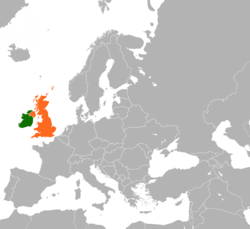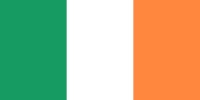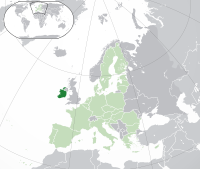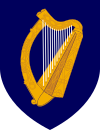愛 爾 蘭 —英國 關係
 | |
17
爱尔兰和
国家 比 较
[编辑]| 爱尔兰 | ||
|---|---|---|

|

| |

|

| |
| 4,757,976(2016 |
65,110,000(2016 | |
| 70,273 km2 | 243,610 km2 | |
| 67.7/km2 | 255.6/km2 | |
| 伦敦 | ||
| 伦敦 | ||
| 单一制议会制宪共和国 | 单一制议会君主立宪制 | |
|
| |
| 现任领导 |
爱尔兰总统: 爱尔兰总 |
|
| 语言 | 爱尔兰语(36%) ( |
( |
| 84.2% |
59.3% 1.5% | |

|

|
参考 文献
[编辑]- ^ Guidance for users. UK Treaties Online. London: Foreign and Commonwealth Office. 2012 [30 May 2012]. (
原始 内容 存 档于2012-10-03).The database includes the names of the Overseas Territories and the Crown Dependencies of the United Kingdom which have been specifically included in the UK’s treaty obligations, either at the time of ratification or accession, or subsequently.
- ^ Turpin, Colin; Tomkins, Adam, British Government and the Constitution: Text and Materials Law in Context 6, Cambridge: Cambridge University Press: 242, 2007, ISBN 0521690293,
The United Kingdom and Irish Governments agreed in 1999 on the establishment of a North-South Ministerial Council in accordance with Strand Two of the Belfast Agreement. (See Agreement on the North/South Ministerial Council, CM 4708/2000.)
…
The British and Irish Governments also agreed in 1999 on the establishment of a British-Irish Council, in accordance with Strand Three of the Belfast Agreement and as a concession to Unionist concerns about an institutionalised participation of the Republic of Ireland in the affairs of the Province. (See Cm 4710/2000.) This Council comprises representatives of the British and Irish Governments, of the devolved administrations in Northern Ireland, Scotland, and Wales, and of the three Crown dependencies of Jersey, Guernsey and the Isle of Man. - ^ Anthony Wilfred Bradley; Keith D. Ewing, Constitutional and Administrative Law, Volume 1 14, Harlow: Pearson Education: 33, 323, 2007, ISBN 1405812079,
In law, the expression 'United Kingdom' refers to the United Kingdom of Great Britain and Northern Ireland; it does not include the Channel Islands or the Isle of Man. For the purposes of international relations, however, the Channel islands and the Isle of Man are represented by the UK government.
…
International law has the primary function of regulating the relations of independent, sovereign states with one another. For this purpose the United Kingdom of Great Britain and Northern Ireland is the state, with authority to act also for its dependent possessions, such as the Channel Islands, the Isle of Man and its surviving overseas territories, such as Gibraltar, none of which is a state at international law.


